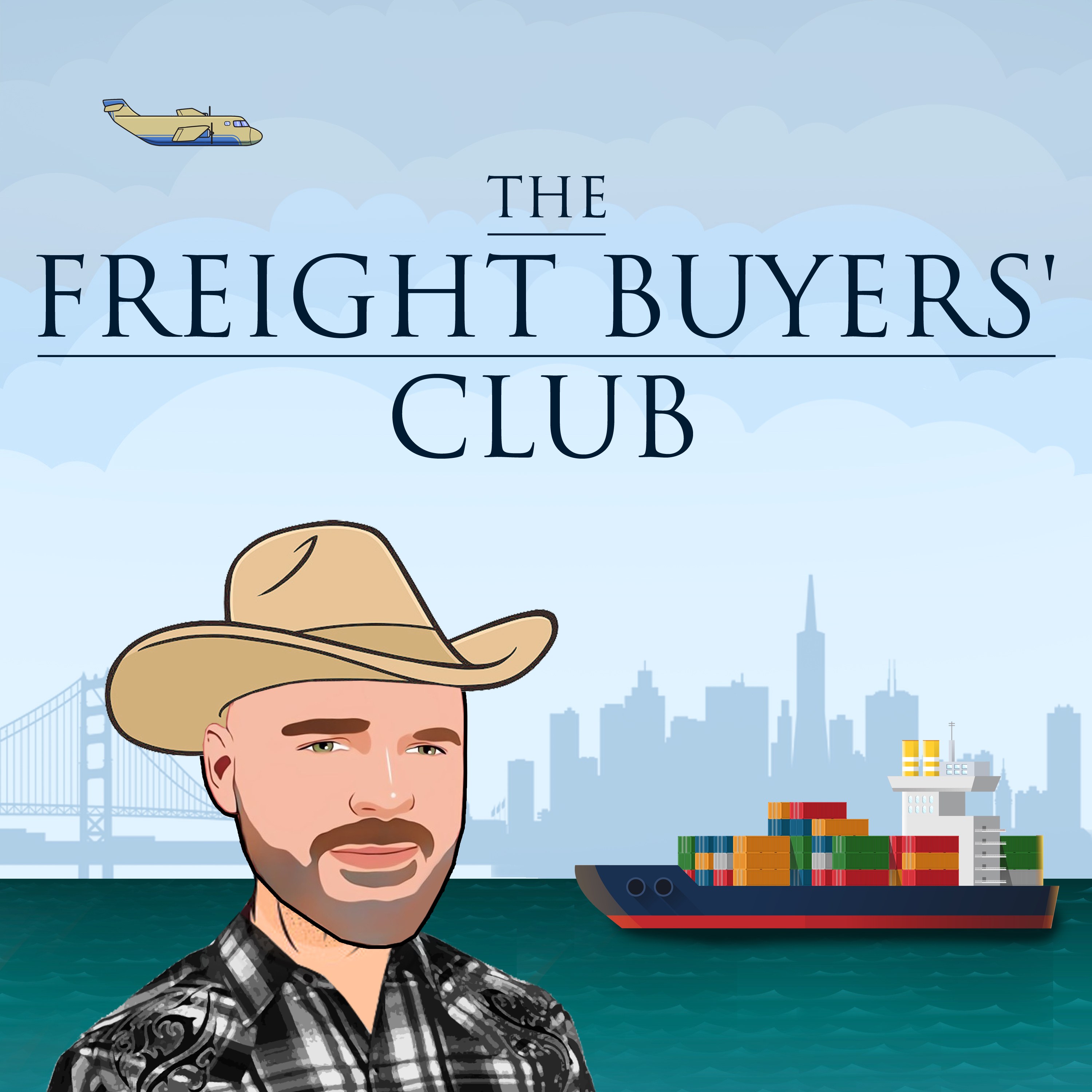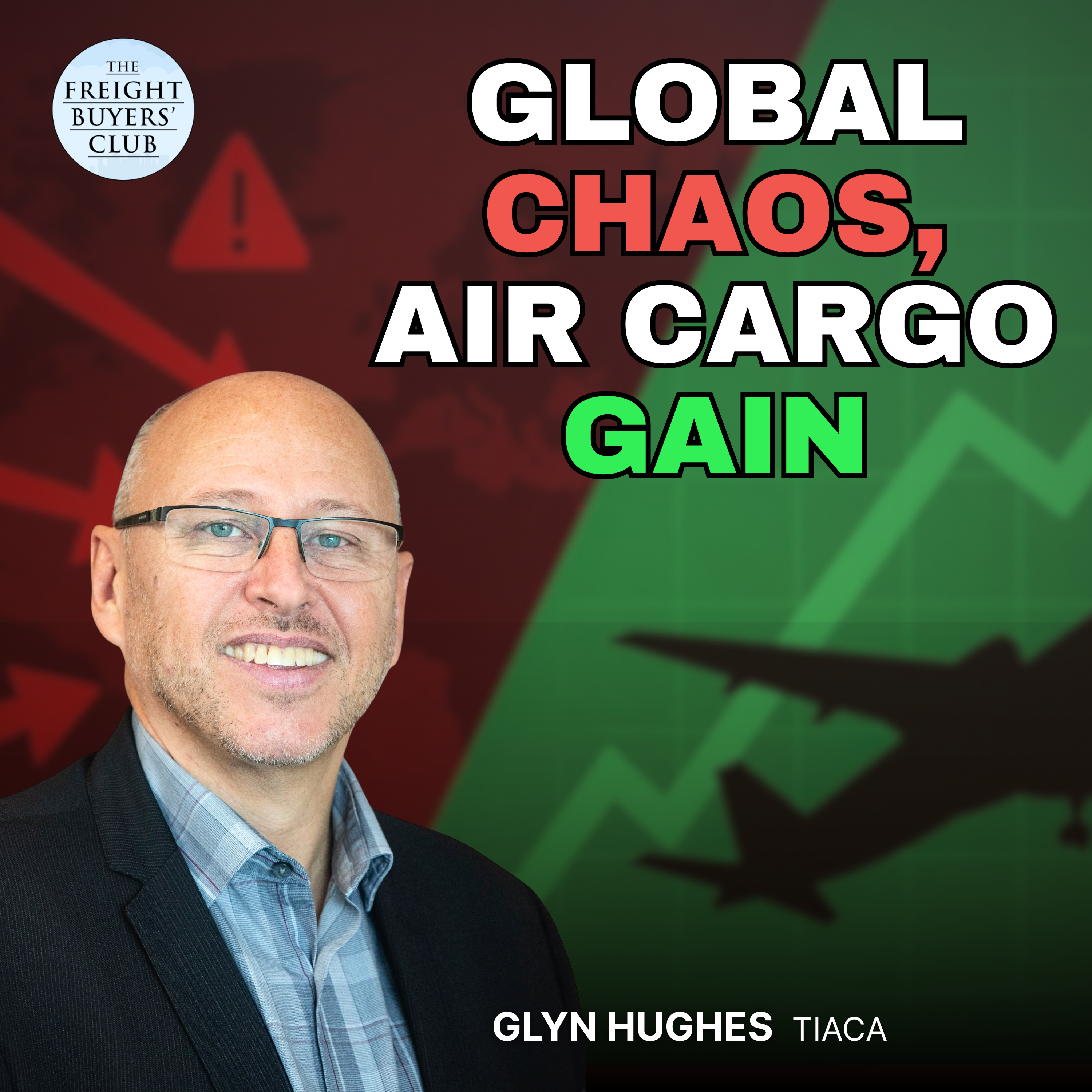Episode Transcript
[00:00:03] Speaker A: Hello, Mike King here, Freight Buyers Clubs in Miami and oh, and of all companies, I'm. Well, we've got a representative from the. From the Port of Hamburg. Port of Hamburg Marketing, in fact. Matthias Schultz. Welcome to the Freight Buyers Club.
[00:00:15] Speaker B: Thank you very much.
[00:00:17] Speaker A: Bit of housekeeping today. This content is produced by Ontigos Cloud.
So Matthias Hamberg, you've been announcing quite a lot during 2025 of major investments in terminal upgrades. You managed to attract a lot of investment. What's the thinking behind it? And can you sort of break down for us who exactly is making these investments and what it means for the port and port users?
[00:00:39] Speaker B: Yeah, you are right. I mean the major announcement was the so called transformation Waltershoferhaven, the area that you can see behind me on the picture where we have the two largest container terminals in Hamburg and one of the operators, Eurogate, namely their terminal, will be enlarged and this will be combined with the restructuring of the port area and an enlargement of the turning circle in front of the Waltersuvern, which will be enlarged from 480 meters to 600 meters diameter. Which means moving the ships into the Waltersuverrafen will be much, much easier in the future and which will lead to saving of time.
[00:01:18] Speaker A: This is the Walterschaft turning basin. So does this allow larger container vessels to come into the port or does it just allow you to handle them quicker?
[00:01:24] Speaker B: It will be easier to handle them a bit quicker. So we already accommodated our largest ship, 24,000 TEUs. Of course it is possible right now, but a larger turning circle would make sync easier.
[00:01:37] Speaker A: We've seen a few disruptions this year.
There's been strikes, there's been a lot of congestion, not just at Hamburg, but port up and down the northern range. Can you tell me how these investments and this expansion of the turning basin will help relieve some of those difficulties or maybe reduce disruptions in the future and your ability to operate more efficiently?
[00:01:55] Speaker B: Yeah, it will give us simply more flexibility, which means more flexibility for the terminals, but as well as for the hinterland connections. And we have the Waltersungferhaven and then we have the fairway in the river Elbe, where it's now possible for two ships with an added width of 110 meters to pass by. So this is a test field. If the tests are successful, this will be further enlarged and this gives us more flexibility as well.
[00:02:24] Speaker A: And have you been doing on volumes this year? You've seen some significant growth. Can you tell me where it's been growing quickest? Maybe? There's been obviously quite a Few changes in tariff policy from the U.S. i mean, has that affected your volumes on the transatlantic, for example, or is this all about growth to and from Asia?
[00:02:41] Speaker B: No, it definitely affects the transatlantic trade, where we saw in the first six months of the year a decrease of almost 20%. In the years before, we always had one record after the other. Not this year. But on the other hand we have growth with China, we have very good growth with India and Malaysia. And on the other hand we are seeing good figures for the Baltic Sea area, where Denmark, Finland and Poland develop very positively.
[00:03:08] Speaker A: Can you tell me a little bit about the hinterland as well?
There's been talk for a number of years about expanding your rail capacity out of Hamburg. Has there been any progress made there?
[00:03:20] Speaker B: Well, the port itself, the Hamburg Port Authority and the heavy Halfenbahn which runs the tracks in the port of Hamburg, are permanently working on progress. But of course, on a certain point the tracks belong to Deutsche Bahn and this is the point where then the Deutsche Bahn has to invest. Right now, for example, there are plans to build a new track into the south from Hamburg to Hanover. This would be of course great advantage for us for interline connections via train, but of course this is a process which will take a little bit of time.
[00:03:51] Speaker A: Okay, well, while talking about time, let's look at some timelines. What's the timeline for that potential rail expansion, if you can give me any sort of idea. And also, what's the timeline for the capacity expansions on the terminal side?
[00:04:03] Speaker B: So when it comes to the new tracks to Hanover, to be honest, I can't tell because I think right now no one knows really, because the process just started a few weeks ago. So no one can really tell how long this will take.
[00:04:16] Speaker A: This is the endless problem that we have in Europe when we're trying to build infrastructure.
[00:04:19] Speaker B: Yes, to answer short, yes, of course it is, Jan. On the other hand, of course we are always trying to make the terminal operations in Hamburg more effective and this happens permanently. Digitization, of course, is a huge topic on that, but the Hamburg Port Authority is kind of a frontrunner when it comes to digitalization.
[00:04:39] Speaker A: Well, do you want to tell me a bit more about investments in digitalisation? How's that going to help customers?
[00:04:44] Speaker B: Well, it makes work for customers easier. If you have a single window of entry, we will establish, or we already have established in Hamburg, a marketplace where customers can look up for all the digitized services in the port of Hamburg. And of course the companies are invited to to be part of this platform, to have one face to the customer.
[00:05:06] Speaker A: So to say you're a major player in terms of receiving imports from Asia. This is the Asia Europe trade, big driver of global container markets. What happens if, as seems sort of increasingly more likely, the Suez Canal reopens the container traffic maybe at some point in the next 12 months. All the talk certainly on the Freight Buyers Club has been we're going to see chaos.
Have you got a plan for this?
[00:05:33] Speaker B: Well, I would say yeah, there will be chaos and no one has really a plan because yeah, it would disrupt everything on the Europe for Asia trade, but there is no specific plan. We will handle one ship after the other. Yes, there will be congestions, of course, when it comes to the River Alway, etc. But we cannot do more than trying to handle one ship after the other. And after, let's say five or six weeks, hopefully the situation will be solved.
[00:06:04] Speaker A: And can you give me maybe a prediction for 2026? Are you expecting to see pretty rapid rates of growth or are you slightly worried about the consumer market in Europe? How you see it when you're talking to customers, how positive are they about next year?
[00:06:20] Speaker B: It's really hard to tell. So we don't even try to do any predictions for 2026.
We saw some pretty good figures for 2025 so far and the result for the first nine months will somehow continue the trend of the first six months.
But 2026 is so hard to tell because what you said, the consumer market is not doing very good in Europe, especially in Germany. And then we have the situation with the Ukraine war, etc. And many, many more. So it's nearly impossible to predict.
[00:06:51] Speaker A: You would like a more normal year then? Would that be enough for us all?
[00:06:55] Speaker B: Yes.
[00:06:56] Speaker A: Matthias Schultz, thanks for joining me today on the Freight Buyers Club.
[00:06:59] Speaker B: Thank you very much.


